Table of Contents
ToggleDeciding between buying a home and renting can feel like choosing between pizza and tacos—both have their perks, but one might just win your heart. While renting offers flexibility and the ability to dodge maintenance headaches, buying a home opens the door to a world of stability and investment. Imagine sipping coffee in your own sunlit kitchen instead of the cramped corner of a rental unit.
Homeownership isn’t just about having a place to hang your hat; it’s about building equity and creating a space that reflects your personality. Plus, who wouldn’t want to decorate without worrying about the landlord’s judgment? As we dive into the advantages of buying a home versus renting, get ready to explore why putting down roots might just be the best decision you ever make.
Overview of Home Buying and Renting
Home buying offers distinct advantages over renting. Stability represents a key benefit, allowing individuals to forge long-term roots in their communities. Building equity becomes a reality with homeownership, as each mortgage payment contributes to personal wealth.
Control over the living environment is another advantage. Homeowners can make renovations and personalize decor without concern for a landlord’s approval. This freedom fosters a sense of belonging, nurturing individual tastes and preferences.
Renting provides its own set of benefits, including flexibility. Tenants often enjoy the ability to relocate easily, adapting to changing personal or professional circumstances. Lower maintenance responsibilities also appeal to renters, as landlords typically handle upkeep and repairs.
Cost considerations play a significant role in decision-making. Monthly rent payments usually lack an investment return, while mortgage payments often translate into asset accumulation over time. Potential homeowners must consider upfront costs, including down payments and closing fees.
Market conditions also influence the buying versus renting choice. In some areas, rising property values encourage purchasing a home as a smart financial move. Other locations might present advantageous rental markets, offering affordability and convenience.
Both options carry unique expenditure implications. Homeownership often incurs additional costs, such as property taxes and homeowners association fees. These obligations contrast with renting, where fees typically cover maintenance and utilities.
Each path presents benefits tailored to individual needs and circumstances. Understanding these nuances helps individuals determine the most suitable option for their lifestyle and financial goals.
Financial Considerations

Financial factors play a crucial role in deciding whether to buy a home or rent.
Long-Term Investment Potential
Homeownership serves as a long-term investment, allowing equity to build with each mortgage payment. Home values generally appreciate over time, contributing to personal wealth. Homeowners often benefit from tax deductions, such as mortgage interest and property taxes, further enhancing financial gain. Investing in real estate can provide stability and growth potential, appealing to those seeking secure financial futures. Renters miss out on this equity growth as monthly payments don’t contribute to ownership. Despite initial costs, purchasing a home typically rewards buyers in the long run.
Monthly Expenses Comparison
Monthly expenses differ significantly between renting and owning. Rent payments often remain fixed for the lease term, offering predictability. However, homeowners face additional costs, including property taxes, homeowners insurance, and maintenance expenses, which can fluctuate. Mortgage payments may offer stability against rising rents; homeowners can potentially lock in lower long-term payments. Consider the potential for appreciating home values versus stagnant rental markets. Evaluating these costs is essential for aligning financial obligations with personal goals.
Lifestyle Implications
Deciding between buying a home and renting affects lifestyle in significant ways. It’s essential to examine flexibility, stability, and maintenance responsibilities.
Flexibility vs. Stability
Renting offers flexibility. Tenants can relocate for work or personal reasons with relative ease, allowing quick changes in their living situations. Conversely, homeownership provides stability. Owning a home fosters long-term relationships with neighbors and deeper roots in the community. Changes like getting married or expanding a family often push individuals toward buying. Owners invest time and effort into their properties, creating a space that reflects their personal style, which can enhance overall satisfaction. High mobility often accompanies rental situations, which might not suit those desiring permanence. Weighing these aspects is crucial for understanding personal priorities when considering housing options.
Maintenance Responsibilities
Renters enjoy reduced maintenance responsibilities. Landlords handle repairs, allowing tenants to avoid unexpected costs associated with property upkeep. Homeowners, however, take on full responsibility for their properties, covering repairs, renovations, and landscaping. These obligations can vary widely, leading to unforeseen expenses in homeownership. Some homeowners appreciate the control over their living environment, while others might find these responsibilities burdensome. It’s critical to factor in these maintenance differences when weighing long-term aspirations against current needs. Ultimately, understanding the level of commitment and effort required for homeownership aids in making informed housing choices.
Tax Benefits
Tax benefits associated with homeownership significantly enhance financial advantages. Homeowners enjoy various deductions that can lead to substantial savings.
Mortgage Interest Deductions
Mortgage interest deductions allow homeowners to reduce their taxable income. As of 2023, homeowners can deduct interest on mortgage debt up to $750,000 for first and second homes. This deduction can result in hundreds, even thousands of dollars saved annually. Taxpayers often find this benefit especially helpful during the early years of mortgage payments when interest amounts are higher. By using this advantage, homeowners can maximize their financial gain over time.
Property Tax Advantages
Property tax deductions present another financial benefit of owning a home. Homeowners can deduct state and local property taxes, further lowering their taxable income. The combined limit for property tax deductions, along with mortgage interest, can reach up to $10,000 per year. Such deductions help homeowners manage their overall tax liabilities effectively. Additionally, these benefits contribute to building equity as homeowners invest more into their property.
Market Conditions
Market conditions significantly influence the decision between buying a home and renting. Current trends in real estate and the rental market directly impact financial and lifestyle choices.
Current Real Estate Trends
Home prices have seen fluctuations due to factors like interest rates and inventory levels. As of 2023, increased demand continues to push prices upward in many urban areas. Interest rates also play a big role; lower rates encourage more buyers to enter the market. Potential homeowners benefit from financing options that lead to affordability. Areas with new developments attract buyers, leading to further increases in property values. Understanding these trends helps buyers assess their potential investment’s financial health.
Rental Market Outlook
The rental market remains competitive, especially in major cities. Average rent prices have risen by 10% over the past year in several regions, driven by high demand and limited supply. Landlords often have the upper hand, with many properties experiencing multiple applications. Renters face challenges in securing affordable housing amid increasing costs. Understanding local market dynamics assists renters in making informed decisions. As rental rates rise, some renters may explore transitioning to homeownership to gain stability. This shift could reshape future market landscapes for both renters and buyers.
Choosing between buying a home and renting involves weighing personal priorities and financial goals. Homeownership offers long-term investment potential and the ability to create a customized living space while building equity over time. On the other hand renting provides flexibility and lower maintenance responsibilities, making it an appealing choice for those who value mobility.
Each option presents distinct advantages that cater to different lifestyles. By understanding these factors, individuals can make informed decisions that align with their unique circumstances. Whether one decides to invest in a property or embrace the freedom of renting, the key is to choose what best fits their needs and aspirations.








